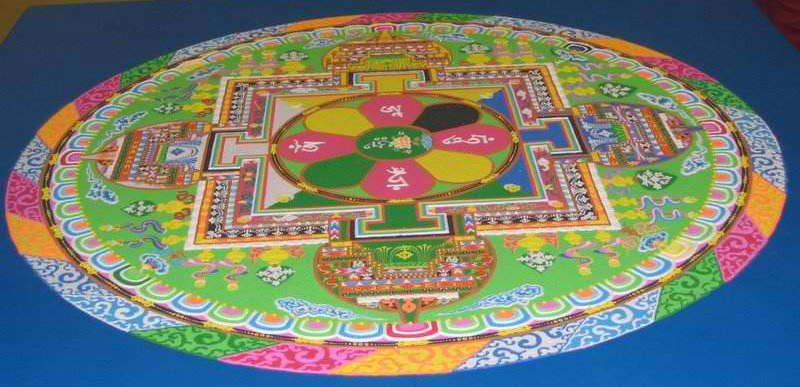People hang on to their anger partly because they do not know how to let go of it and partly because they fear what might replace it. The release of our anger leaves us exhausted and creates a vacuum that grief rushes in to fill. We use our “stuck” anger to keep the grief away. When we peel away the tough, protective skin of anger, what lies in wait for us is the raw oozing grief. Acknowledging our anger allows us to recognize the heinous crimes committed against us.
Recognizing the crimes requires us to feel the grief.
If you have glimpsed the abyss that is the grief of losing your childhood, your sense of safety, your sense of being loved and valued, your very right to your sovereign self, you know how terrifying that dark and seemingly bottomless place is in your soul. Any sane person would do anything she had to do to avoid the edge of that abyss, right? Of course, she would, which is what makes it even more terrifying to contemplate that the only way past the grief is through it. One of our mantras as we struggle to heal is, “we must feel this to get through it.”
The main things we want everyone to know about a
survivor’s right to grieve:
· Few people escape experiencing real grief in their lives – it seems to be part of the entrance fee for humanity.
· Many incest survivors never were allowed an opportunity to grieve deeply the many losses inherent in the incest – loss of childhood, loss of safety, loss of a sense of self.
· Most losses must be grieved in order to move past them toward wholeness.
· Even though facing the grief and allowing ourselves to feel it is a frightening prospect, it
probably always is less painful than the distractions we devise to avoid feeling the grief (substance abuse, interpersonal drama, unsafe sexual choices, other addictive behavior).
· We must be kind and patient toward ourselves. We must allow grief to have its way with us, but only up to a point.
· It is all right to ask for help.
· Helpers need to listen more than they talk –patience and acceptance are key.
· We might always live with the sadness of incest, but the initial intensity of the grief will diminish with time.
· It is OK to let go of our grief when we are finished with it – something beautiful often lies just beyond.
· Many incest survivors never were allowed an opportunity to grieve deeply the many losses inherent in the incest – loss of childhood, loss of safety, loss of a sense of self.
· Most losses must be grieved in order to move past them toward wholeness.
· Even though facing the grief and allowing ourselves to feel it is a frightening prospect, it
probably always is less painful than the distractions we devise to avoid feeling the grief (substance abuse, interpersonal drama, unsafe sexual choices, other addictive behavior).
· We must be kind and patient toward ourselves. We must allow grief to have its way with us, but only up to a point.
· It is all right to ask for help.
· Helpers need to listen more than they talk –patience and acceptance are key.
· We might always live with the sadness of incest, but the initial intensity of the grief will diminish with time.
· It is OK to let go of our grief when we are finished with it – something beautiful often lies just beyond.
For Family, Friends, and Neighbors
If you are a supporter for an incest survivor, your ability to be tolerant of our grief without interrupting it or judging it is critical. Grief comes in waves and at any time we can be dragged under by a sudden rip tide, especially when we first are actively coming to grips with how incest has impacted our lives. Small, practical comforts from others can mean the world. Offer warm arms, patience, a loving heart, and a lot of herbal tea - tears can dehydrate a grieving person. Take your cues from us – let us sleep, but not excessively. Go for a walk, even if it is just a turn around the garden. Bring a few flowers, a new book or movie, or some other bright fragment from the outside world. Take over mundane chores whenever possible. If we live alone, offer to stay over or invite us to your house.
When we cry, cry with us. Express your sorrow that we are going through this pain.
Validate our feelings. Express anger at the perpetrator and sorrow that the people around us did not intervene, even if you were one of the people who should have intervened. Do not tell us what we must do but do offer practical help. Remind us that much help is available in the form of talk therapy, physical therapy, and other healing methods – offer to drive us to appointments, if we want to go.
If you put your foot in it and make things worse, apologize and remind us that you are learning how to help us as you go – ask our forgiveness for your imperfections. Try to take cues and clues from us – ask rather than dictate, whenever possible, but we reiterate that you must take action if our grief seems to be out of control or we are placing ourselves in peril.
If you are a person who also was affected by an incestuous situation, make sure not to burden us with your own grief when we are in the throes of ours. Don’t try to be our therapist, and do not allow us to be yours. There will be time to reconcile, be accountable, and forgive each other later. Grieve now – then heal. Don’t make it about you – and if you cannot help making it about you, get some help of your own and send in substitutes to provide support for us.
Please don’t judge us as we grieve. Each person has his or her own internal timetable for processing something as monumental as this particular sort of grief. Do not
press us to “snap out of it” or to “make faster progress.” If we are under pressure to hurry through the grieving process, we are likely just to shut down – we are people who have been taught that many of our feelings are unacceptable and futile, and we need the freedom to explore grief in our own way and time.
We might never be “over” the incest any more than anyone ever gets over other tragic circumstances. We will get better at coping. You can encourage us, and remind us,
that these feelings will not always be as intense as they are right now. Be sure to point out breaks in intensity when the sun comes out for a few moments and gently celebrate them.
Above all, do not give up hope for us. Believe in our resilience and express confidence in our ability to grieve, and to stop grieving when it is time to stop. Every rotten day we battle to get through can add up to a new life for us – a life where we still grieve, but the grief is only one aspect of our lives - lives that are rich, full, and authentically our own.
When we cry, cry with us. Express your sorrow that we are going through this pain.
Validate our feelings. Express anger at the perpetrator and sorrow that the people around us did not intervene, even if you were one of the people who should have intervened. Do not tell us what we must do but do offer practical help. Remind us that much help is available in the form of talk therapy, physical therapy, and other healing methods – offer to drive us to appointments, if we want to go.
If you put your foot in it and make things worse, apologize and remind us that you are learning how to help us as you go – ask our forgiveness for your imperfections. Try to take cues and clues from us – ask rather than dictate, whenever possible, but we reiterate that you must take action if our grief seems to be out of control or we are placing ourselves in peril.
If you are a person who also was affected by an incestuous situation, make sure not to burden us with your own grief when we are in the throes of ours. Don’t try to be our therapist, and do not allow us to be yours. There will be time to reconcile, be accountable, and forgive each other later. Grieve now – then heal. Don’t make it about you – and if you cannot help making it about you, get some help of your own and send in substitutes to provide support for us.
Please don’t judge us as we grieve. Each person has his or her own internal timetable for processing something as monumental as this particular sort of grief. Do not
press us to “snap out of it” or to “make faster progress.” If we are under pressure to hurry through the grieving process, we are likely just to shut down – we are people who have been taught that many of our feelings are unacceptable and futile, and we need the freedom to explore grief in our own way and time.
We might never be “over” the incest any more than anyone ever gets over other tragic circumstances. We will get better at coping. You can encourage us, and remind us,
that these feelings will not always be as intense as they are right now. Be sure to point out breaks in intensity when the sun comes out for a few moments and gently celebrate them.
Above all, do not give up hope for us. Believe in our resilience and express confidence in our ability to grieve, and to stop grieving when it is time to stop. Every rotten day we battle to get through can add up to a new life for us – a life where we still grieve, but the grief is only one aspect of our lives - lives that are rich, full, and authentically our own.



